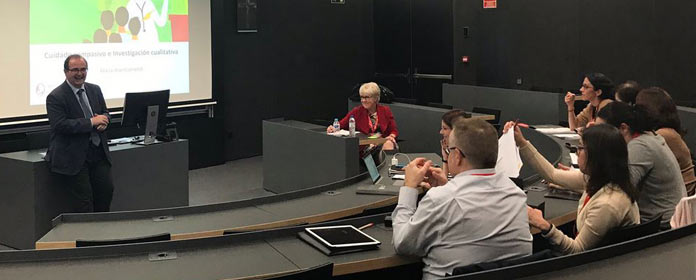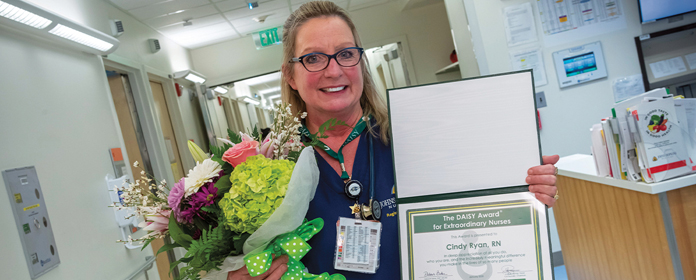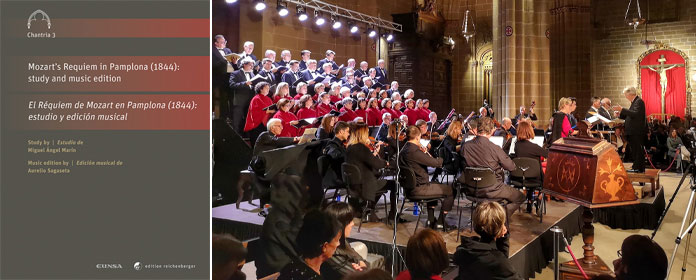The research qualitative , "ally" of healthcare professionals to advance compassionate care
The ATLANTES Program of the ICS organized a course at campus in Madrid on this issue, with the participation of researcher Carole Robinson, from the University of British Columbia.

PHOTO: Courtesy
Qualitative research can help healthcare professionals advance compassionate care. In order to bring them closer to these questions and their potential impact for the clinical internship , the ATLANTES Program of the Institute for Culture and Society ATLANTES Program of the University of Navarra held a course at campus in Madrid.
The team organizing the activity argues that clinical reality is complex: healthcare professionals care for patients facing health situations that shape their lives and those of their loved ones. It also argues that the contexts in which people live and the meaning of their personal experiences influence how they live and behave during illness.
In view of this, ATLANTES researchers emphasize the importance of healthcare professionals providing the compassionate care required by their patients. This subject care can be understood, in their opinion, as a dynamic process where the uniqueness of the individual is recognized and a relationship between the patient and the healthcare professional is sought.
In such a relationship - they detail - the knowledge, emotions, strengths, intuitions and suffering are involved, which allows healthcare professionals to act with warmth and empathy, providing individualized care.
"Compassionate care is a foundation for palliative care," notes Carole Robinson, professor at the University of British Columbia (Canada) and speaker featured in the course. "It's active care that respects and understands the whole person receiving care and their family. So we talk about person- and family-centered care."
The most important thing for the patient and familyAccording to agreement , compassionate care "focuses on what is most important to the patient and the family" so that "this care meets their needs in a way that is meaningful to them.
Regarding the reflections made in the course's framework , Robinson points out that qualitativeresearch can be an ally for compassionate care because "it contributes to knowing people's experiences" and "it is a way of providing evidence that supports our understanding and our own being as health professionals".
He says that although there are many different methods at research qualitative, they all share "conversations with people about their experiences," with the idea that clinicians can better understand them.
"It is obvious that every human being is unique and we must always take that into account, but if we gain a more general understanding of, for example, what patients believe compassionate care is and their experience of it, it allows us to focus better on our relationships and on providing such care," he concludes.




